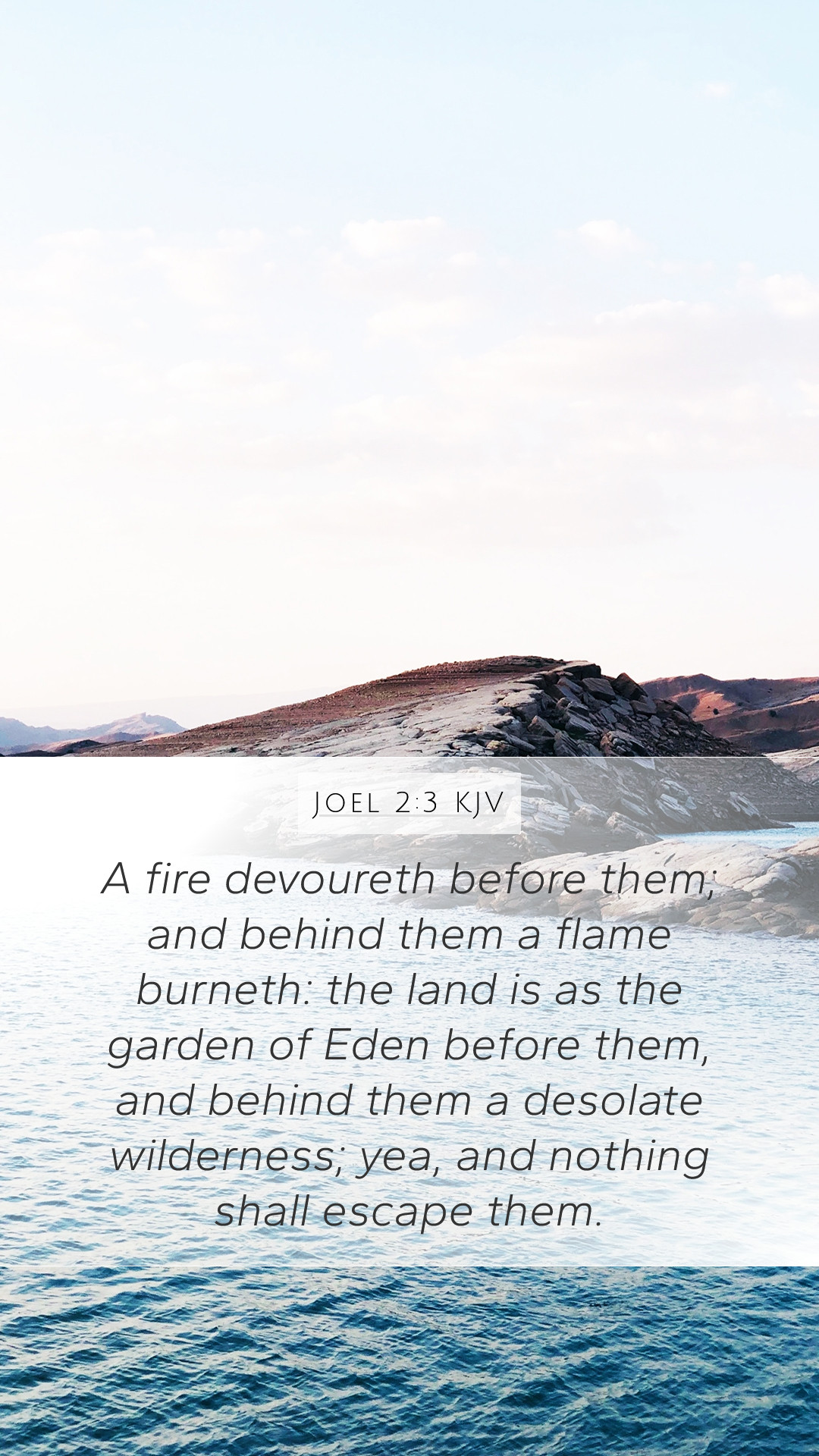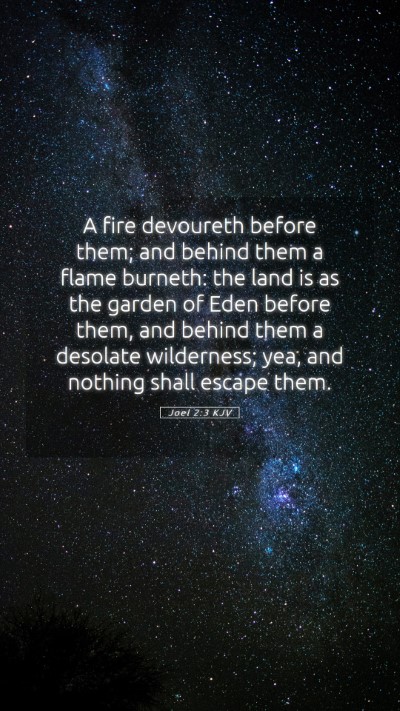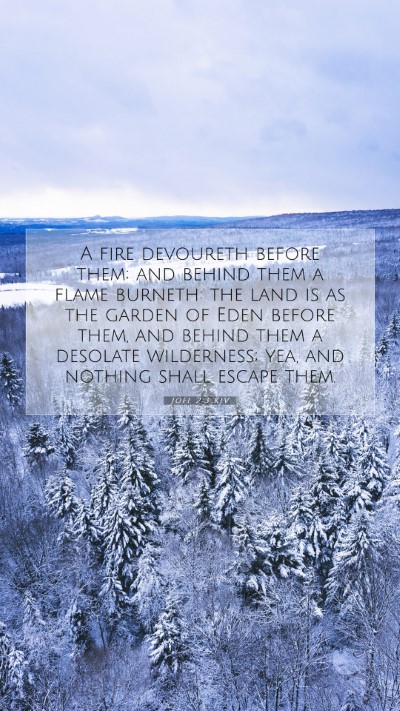Understanding Joel 2:3 - A Comprehensive Bible Verse Commentary
Joel 2:3 states:
"A fire devours before them, and behind them a flame burns; the land is like the garden of Eden before them, but desolation and wilderness are behind them, and nothing escapes them."
Bible Verse Meanings and Interpretations
The verse from Joel is crucial for anyone seeking to deepen their Bible verse understanding and Bible verse interpretations. It describes a devastating locust invasion that symbolizes impending judgment on the people for their sins. The imagery of fire represents destruction, while the "garden of Eden" conveys a stark contrast between prosperity and devastation.
Commentary Insights
-
Matthew Henry's Commentary:
Henry emphasizes the catastrophic nature of the locusts, noting that they are instruments of God's judgment. He explains that the description signifies both the beauty of what was once in the land and the ruin that follows sin.
-
Albert Barnes' Commentary:
Barnes discusses the dual imagery in this verse, interpreting the locusts like a fierce army. He points out the notion of spiritual desolation that follows after the blessing of God's creation, emphasizing the importance of repentance.
-
Adam Clarke's Commentary:
Clarke reflects on the devastation depicted in the verse, highlighting the totality of destruction that sin brings. His commentary draws parallels between physical and spiritual famine, urging the need for a return to God.
In-Depth Bible Verse Analysis
This verse serves as an example of Biblical exegesis, allowing readers to grasp the significance of prophetic language used by Joel. The locusts are portrayed not merely as pests but as an army that illustrates the dire consequences of turning away from God. Understanding Scripture requires recognizing the historical context of this prophecy, informed by its portrayal of judgment and the call for Israel to repent.
Historical Context
The backdrop of Joel 2:3 is crucial to its interpretation. The land of Judah had experienced severe locust infestations (possibly literal) that were believed to be a divine signal. Joel urges his community to recognize that their physical hardships mirror their spiritual state, echoing how to interpret Bible verses in a way that connects spiritual truths to real-life circumstances.
Applying the Verse to Daily Life
In this context, the meaning of Bible verses can be applied to modern life. The verse reminds us of the duality of blessings and curses based on one's relationship with God. It poses the question of whether we are cultivating the garden or allowing desolation to set in through neglect of our faith.
Bible Study Insights
Utilizing resources like Bible study guides and Bible study tools, readers can explore themes found in Joel 2:3. Engaging with study groups can lead to further Bible study discussions centered on the importance of recognizing sin and its consequences.
Related Bible Cross References
- Isaiah 5:5 - The Lord's vineyard and its desolation.
- Revelation 9:7 - The locusts as creatures of judgment.
- Exodus 10:4 - The plague of locusts in Egypt.
Conclusion
Joel 2:3 encapsulates a powerful message of warning and hope, calling its readers to repentance and restoration. Understanding the full depth of this verse enhances our Bible study insights and enriches our faith journey.


